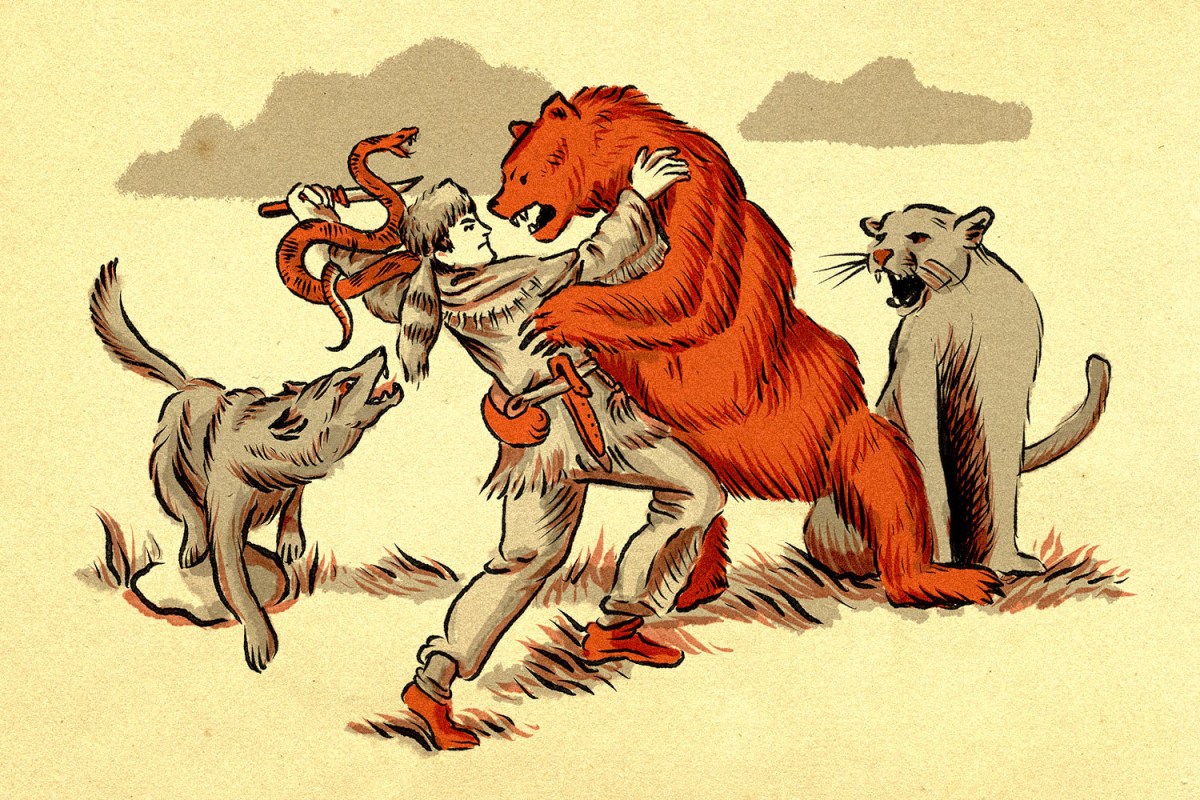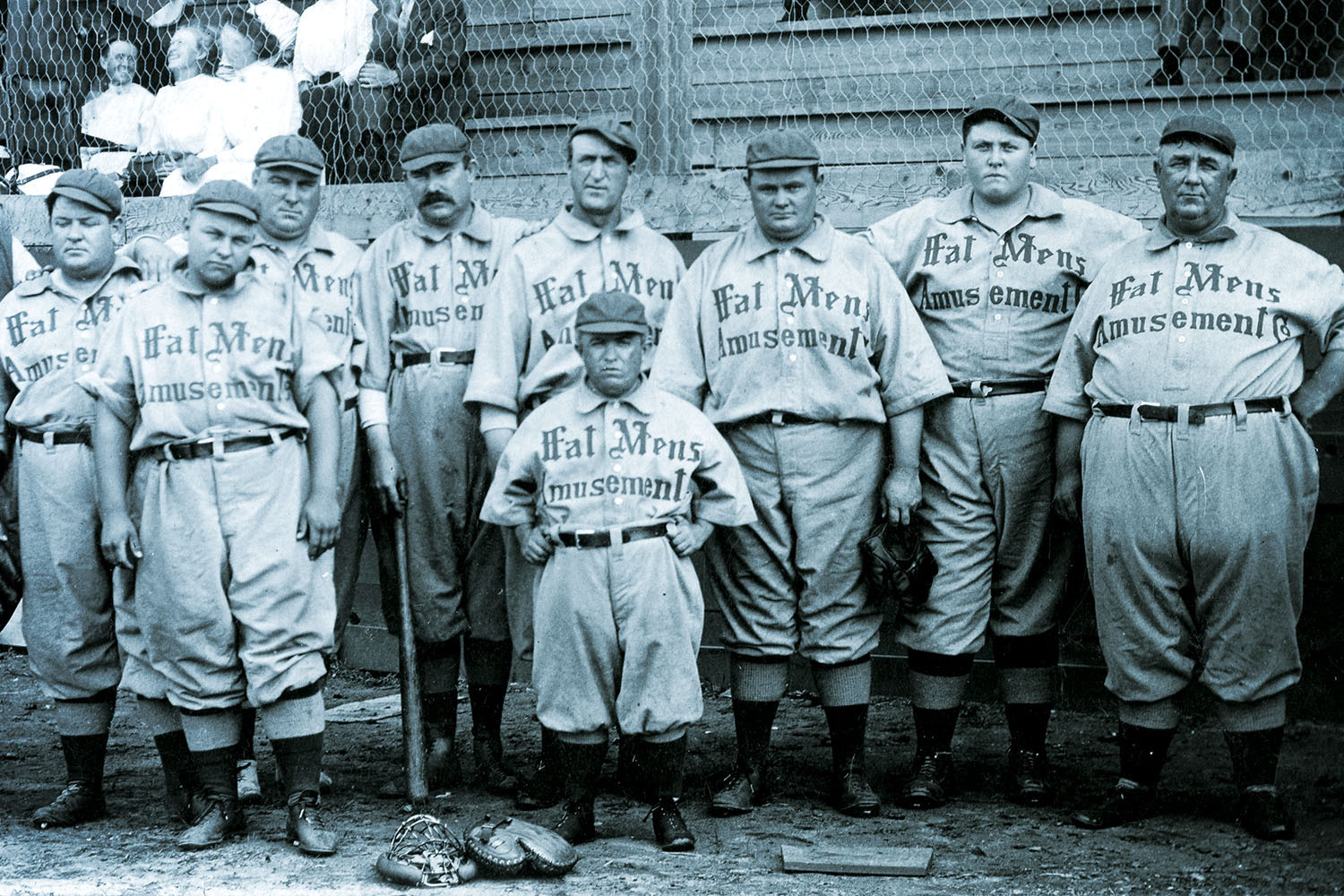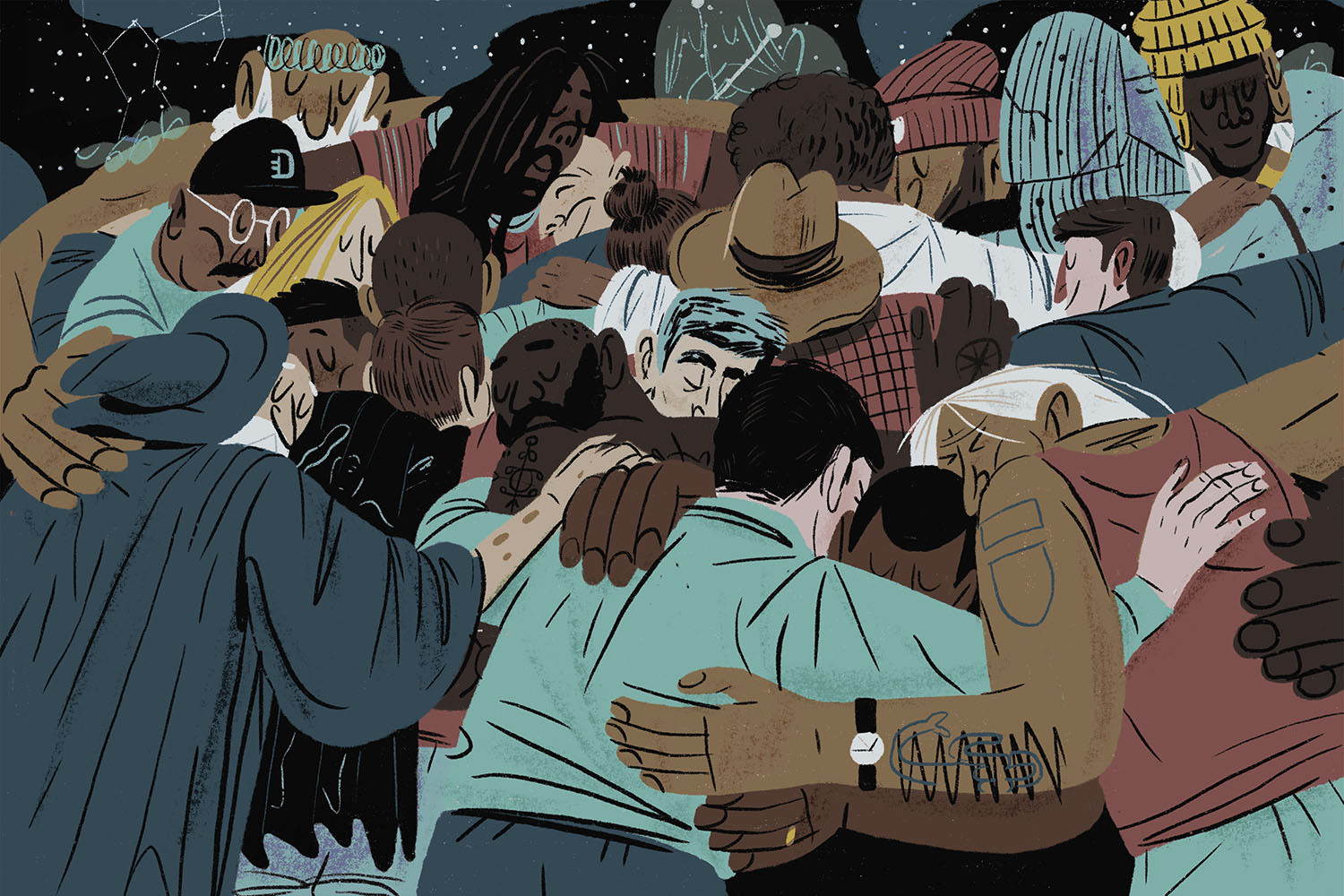If you’re a man reading this, there’s roughly a 6% chance you think you could win an unarmed fight against a grizzly bear. This means you think that you — a human man weighing around 160 lbs., perhaps — could defeat a wild animal that weighs in the region of 600 lbs., stands at least eight feet tall and has not just teeth designed to break bone and muscle, but also claws that can be almost as long as a human hand.
This 6% figure comes from a May 2021 YouGov survey. The grizzly bear example was by no means the most deluded: 8% of American men believe that they could — with no weapons other than their bare hands — defeat either a gorilla or a lion. While exactly how these men would best the beasts remains unclear, one thing is certain: men love to imagine how they would fare in fantasy fights with wild animals. And generally they overestimate their abilities. Wildly.
Not too long ago, I signed up to receive emails from Quora, a site on which people submit questions to a community of respondents, some of whom may be able to bring their expertise to the matter. After a while I noticed that my inbox was full of people — always men — obsessed with asking questions like “What would happen if you put 500 MMA fighters in a cage with a gorilla”; “Can a human win a fight with a tiger barehanded”; and “Is it possible for a very strong man to fight a bear and win by choking the bear or punching it real hard?” No matter how easy it is to Google these questions and discover evidence that would instantly remind you that humans are physically pathetic compared to pretty much any animal apart from a butterfly, every questioner seemed to believe that if they worded the question in the right way, they might get the answer they wanted.
On Reddit, the same phenomenon exists. One example of a conversation starter is “Change My View: a trained human can consistently defeat silverback gorillas in melee combat.” This was posed by a 22-year-old man who wants to be known as Greg. (In Greg’s definition of melee combat, incidentally, the human has weapons like spears and swords.) Under his question, Greg says, “Armed and trained humans are ridiculously efficient when it comes to beating animals, and that skill advantage never gets mentioned.”
Greg asks questions like this on other forums, like r/whowouldwin, where opponents are pitted against each other in fantasy battles (sample scenario: “Jeff Bezos, Elon Musk, Bernard Arnault, Bill Gates, and Mark Zuckerberg have to fight to the death…”). “It’s fun for me to talk with other people about imaginary combat situations, both ‘realistic’ ones like lion vs bear, or fantastical ones like Naruto vs Ichigo,” Greg tells me. “It makes for interesting conversation, because you get to explore how you think about combat, and how other people think about combat, and what way of thinking about combat makes the most sense.”
Greg isn’t deluded: he doesn’t think a man would stand a chance in an unarmed fight with a gorilla. But he does think that with a weapon like a sword, he would. How would he personally fight a gorilla? “Without any restrictions, I’d be happy to roll into battle driving a tank,” he says. If he weren’t allowed any equipment, though, “I’d probably just die,” he says.
Oliver, who is 18 and from France, is another man who asks questions like this and lurks on the r/whowouldwin forum. His question is about whether there is any human who could beat a gorilla hand-to-hand or wielding various weapons. “Funnily enough, I think I posed the question due to seeing so many people (in my opinion) vastly overestimating how they’d perform against an animal,” he tells me. He wanted to lead commenters away from discussing their own ability and towards a discussion about a hypothetical fighter with incredible strength and speed. This phenomenon is common too, of course: people often wonder if Mike Tyson in his prime could have beaten a gorilla. The answer? Obviously not. As numerous sources point out, gorillas, who can weigh twice as much as men, are unimaginably strong and can probably shatter your skull with one punch. As one gorilla website puts it, “You would only survive if that was what the silverback wanted.”
What we forget, Oliver thinks, is that we are powerful relative to animals due to how well humanity cooperates collectively — “not because any given person could be a better hunter than an apex predator.” Collective pride in humanity’s achievements isn’t as innate as individual pride, he believes. “We’re taught that the world essentially just consists of humans and nature, and as a result view ourselves as very distant from animals and have a sort of us vs them mindset with questions like these. A loss against a strong animal is a loss for humanity and a win for animals.”
John Hechtel, a bear expert who was on the governing Council of the International Association for Bear Research and Management, is regularly asked about people’s impression that they could take down a bear. Though he says that a bear might be unwilling to risk injury if it felt threatened, he confirms that if a bear wants to fight, a human being has zero chance. “The physical strength of bears is awesome – greater pound for pound than we can appreciate — and that power commands claws and sharp teeth that are capable of quickly inflicting serious incapacitating damage to a creature as fragile as a human if they choose.”
In 2019, Discovery put these sentiments to the test as best they could, with the show Man vs Bear. The program pitted men and women against bears in various strength challenges. When he learned about the concept, director Anthony Gonzales thought, “It sounded crazy and it sounded amazing and I wanted to be part of it.”
Before the bear opponent was revealed, Gonzales says, the contestants were confident — as those 6% of American men were. Once the bear appeared, however, they tended to say things like “That’s a big bear” and “I didn’t realise the bear was that big.” As Gonzales points out, the bear wins every challenge handsomely — the humans are essentially competing against one another. Competitors included bodybuilders in peak physical condition, but after they tried holding onto a rope that the massive bear was pulling with its teeth, they said it was like being attached to a truck and being pulled down the road. “You realize very quickly that you cannot compete against the bear,” says Gonzales. “The bear is taller than you, the bear is bigger than you, the bear is stronger than you. There’s nothing you can do against the bear.”
Jonathan Gottschall, an author interested in evolutionary psychology, had cause to think about men’s attitude to violence in his book The Professor in the Cage: Why Men Fight and Why We Like to Watch. He points out that for our ancestors, these hypothetical conflicts weren’t so outlandish. “It might make sense for me to imagine how I would react to an animal attack and game-play scenarios,” he says. “As extreme as the delusion is about winning that fight, there’s nothing extreme at all about the fascination of 1) imaginary violence and 2) violence between man and animal.” Speaking to Jezebel about the same question, psychotherapist Sandeep Kumar suggested that “there may be something pressing about the possibility of our species going extinct and the desire to prove that we are still top of the heap.”
One thing Gottschall observed was that when he fantasized unconsciously about a fight, he would always imagine himself winning. So did friends of his — friends, who, if they sized up an opponent for real, would recognize they had no chance. In fact, he says, the conclusion of his book was essentially that “men don’t like to fight.”
This is man’s undoing: he doesn’t like to fight because he is not built for it. Bears, however, are killing machines. Like Gottschall’s friends, the 6% of men who believe they could beat up a bear might revise this opinion if they saw an actual bear. As this encounter is (fortunately) unlikely to happen, the men can continue to live in ignorant bliss as long as they like. The other 94%, meanwhile, know that there is strength in honestly acknowledging the limit of your capabilities. Or, to put it another way, don’t fuck with a bear.
This article appeared in an InsideHook newsletter. Sign up for free to get more on travel, wellness, style, drinking, and culture.























